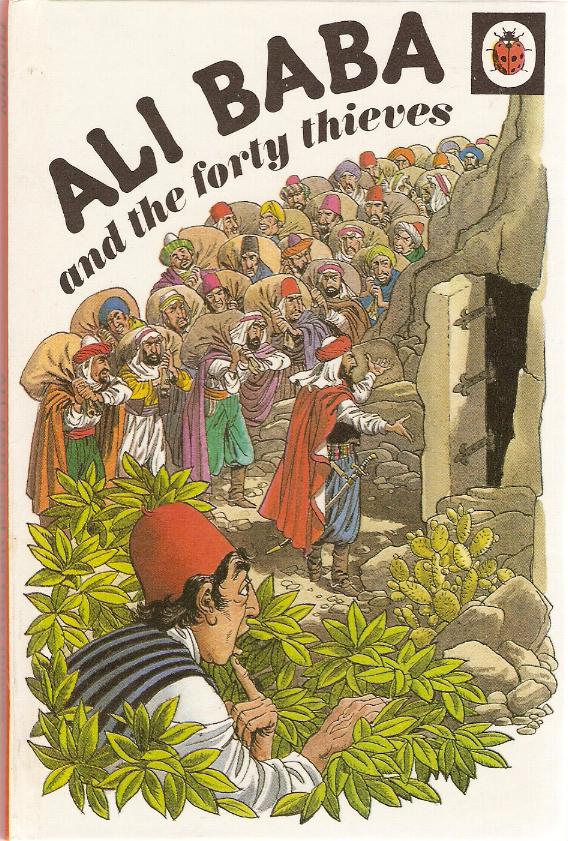The phrase "Open Sesame" has become synonymous with the unlocking of doors, both literal and metaphorical, throughout history. Its origins can be traced back to the ancient tales of "One Thousand and One Nights," where it served as the magical incantation to access the treasure-filled cave of Ali Baba. This enchanting phrase has not only captured the imagination of readers for centuries but has also permeated various aspects of popular culture, from literature to film. As we delve deeper into the open sesame origin, we will explore its historical context, linguistic roots, and its enduring significance in modern times.
The tale of Ali Baba and the Forty Thieves, in which the phrase first appears, has fascinated audiences since it was introduced to the Western world in the 18th century. But what do we really know about the origins of this captivating phrase? In this article, we will uncover the layers of meaning behind "Open Sesame," examining its role in storytelling and its cultural implications across different societies.
From its enchanting beginnings to its contemporary relevance, the open sesame origin serves as a powerful reminder of the allure of language and the timelessness of stories. Join us as we embark on a journey through history, mythology, and the transformative power of words, unraveling the secrets behind this iconic phrase.
What is the Historical Context of Open Sesame?
To understand the open sesame origin, we must first consider its historical context. The phrase is derived from the Arabic word "simsim," which means sesame. In the story of Ali Baba, the phrase is uttered to open a hidden cave filled with treasures. This symbolism of sesame represents wealth, abundance, and hidden potential. The use of "Open Sesame" as a magical command reflects the broader themes of discovery and the unveiling of secrets that are prevalent in many cultures.
How Did Open Sesame Enter Western Literature?
The introduction of "Open Sesame" to Western literature can be traced back to the translation of "One Thousand and One Nights" by Antoine Galland in the early 18th century. Galland's translation brought the enchanting tales of the Middle East to European audiences, and the phrase quickly became famous. Its appeal lies in the combination of mystery and adventure, making it a captivating element of storytelling.
What are the Linguistic Roots of Open Sesame?
The linguistic roots of "Open Sesame" can be analyzed through its etymology. The word "sesame" originates from the Middle English word "sesam," which in turn comes from the Latin "sesamum," and ultimately derives from the Greek "sison." This journey through languages highlights the enduring nature of the phrase and its adaptability across cultures. Additionally, the connection to the sesame plant adds a layer of significance, as the seeds are often associated with unlocking potential and prosperity.
What Cultural Significance Does Open Sesame Hold?
The open sesame origin extends beyond its literary roots; it has taken on cultural significance in various contexts. In many cultures, the act of unlocking or opening something represents knowledge, opportunity, and new beginnings. The phrase has been referenced in numerous works of art, music, and film, illustrating its lasting impact on popular culture. For instance, it has inspired adaptations in animated films, theater productions, and even video games, where the concept of unlocking hidden treasures continues to resonate with audiences.
How Has Open Sesame Influenced Modern Language?
The phrase "Open Sesame" has transcended its original context and has become a metaphor for opening doors to new opportunities or experiences. In contemporary language, it is often used colloquially to describe a situation where someone gains access to something previously unattainable. This evolution of meaning underscores the adaptability of language and the power of storytelling in shaping our understanding of the world.
Are There Similar Phrases in Other Cultures?
Across the globe, many cultures have their own versions of phrases that signify unlocking or revealing hidden knowledge. For instance, in Chinese folklore, the story of the "Magic Key" serves a similar purpose, where a phrase or action can open doors to treasure and wisdom. Similarly, in Western fairy tales, phrases like “Abracadabra” or “Open Sesame” have been employed to conjure magical effects. These parallels highlight the universal human desire to uncover secrets and access the unknown.
What Can We Learn from the Open Sesame Origin?
The open sesame origin serves as a fascinating case study in the intersection of language, culture, and storytelling. It offers valuable insights into how phrases evolve and adapt over time, mirroring societal changes and cultural exchanges. As we reflect on the significance of "Open Sesame," we are reminded of the power of words to inspire, connect, and unlock new possibilities. Whether in literature, art, or everyday conversation, the phrase continues to resonate as a symbol of discovery and transformation.
Conclusion: The Enduring Legacy of Open Sesame
In conclusion, the open sesame origin is a rich tapestry woven from history, linguistics, and culture. Its journey from the ancient tales of "One Thousand and One Nights" to contemporary usage reflects the timeless appeal of storytelling and the human fascination with unlocking secrets. As we continue to explore the world around us, may we always carry with us the spirit of "Open Sesame," embracing the possibilities that lie just beyond the door.
You Might Also Like
Unraveling Eminem's "Trouble" Lyrics: A Deep Dive Into The Mind Of A Rap LegendUncovering The Heart Of Marshall Iowa Basketball
Unveiling The Marvels Of Dual Clutch Transmission
Exploring The Meaning Behind "Took Her To The O Lyrics"
Celebrating Love: Happy Birthday My Love
Article Recommendations
- Does Maria Bartiromo Have Cancer
- Dolly Parton Without Wig
- Where Is P Diddy Now
- Surya Sethupathi
- Gh Comings And Goings
- Matthew Settle
- Michael C Hall Weight
- Zach Roloff
- Jennifer Rauchet
- Ella Langley Relationship With Riley Green


